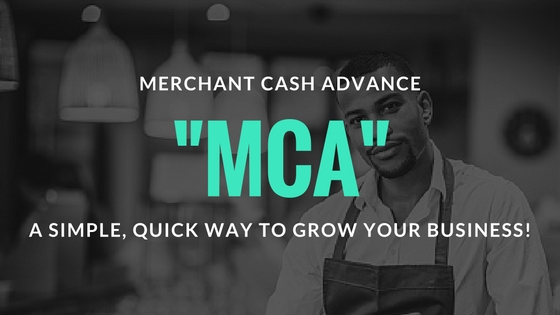Among business analysts, lenders and small business owners alike, there’s continued controversy over the value and potential risks of a little understood lending alternative called the merchant cash advance. Merchant cash advances may also be referred to as: Same Day Small Business Financing, Merchant Cash Advance Loans, Business Cash Advance, Unsecured Business Loans, Merchant Money Advancement, Merchant Cash Financing, No Interest Merchant Loans, Unsecured Business Loans, Business Cash Advances, Merchant Cash Advance Loans and Merchant Loans. While this quick capital option continues to be shrouded in negative speculation, an increasing number of business owners seem to be availing themselves of a merchant cash advance, and with good results. So just what is a merchant cash advance, and how did it get such a bad reputation? Let’s break down the facts:
In a nutshell, A Merchant Cash Advance (MCA) can provide business borrowers with an upfront fixed amount of cash in as little as 24 hours. The funding amount is based upon a percentage of the businesses credit card receivables or daily cash balances using historical credit card receipts and bank statements to determine the initial advance. The business pays back the advance, plus a percentage, often referred to as a discount factor, from a portion of their credit card receivables or cash available plus a percentage which is often referred to as a discount factor. The remittances are drawn from the business customer on a daily, weekly or monthly basis until the obligation has been met. An MCA is not technically a small business loan and as such MCA's are not limited in what rates they charge or what terms they establish and therefore often have high interest rates. For this reason it is very important for a business owner to be completely aware of how the MCA product works and how it could affect their business. MCA's are good options for small business owners who may not have strong credit but have lots of credit card activity and need financing quickly.
The MCA business has grown tremendously since 2007, when the recession led banks to cease lending to small businesses almost completely. As with many business phenomenons, the potential of this unregulated profit source encouraged a few irresponsible providers to advance as much capital as possible, regardless of borrowers’ demonstrated ability to repay. These deceitful lenders held business owners to exorbitant interest rates and used contracts riddled with vague clauses and hidden fees.
At the height of the financial crisis, the unregulated nature of the MCA business left many saying “Thanks, but no thanks.” But since then, industry competition has led to tremendous downward pressure on interest rates and improvements to quality regulation.
Simply put, for small businesses who need cash immediately and don’t qualify for a traditional loan, an MCA could be a lifesaver. Despite the controversy, here are a few reasons this lending alternative deserves a second chance:
Fast access to cash
Cash advance applications typically require less paperwork and have faster turnarounds than traditional loans. In fact, LVRG is able to transfer lump sum capital in as little as a day in some cases, which can be lifesaving for a business with an unexpected cash flow emergency.
A good option for bad credit
Merchant cash advances biggest advantage as a loan product is that it opens up a channel for business owners with bad credit to get liquid cash. Additionally, the customer’s credit score isn’t as important as their future sales projections, given that the provider is paid back through a percentage of daily credit card sales.”
Flexible return payment
With a traditional loan, the same minimum payment on principal and interest is due month to month, regardless of whether business is in a slump. This can be a big challenge for seasonal businesses that don’t have a regular cash flow. But because a merchant cash advance is repaid through a fixed percentage of daily sales, borrowers have the flexibility to repay more when sales volume is high and less during slower sales periods.
No collateral required
If an entrepreneur doesn’t have significant personal assets to leverage, traditional bank loans can be almost impossible to obtain. And even for business owners who do have significant home equity or other assets to be used for collateral, the risk that entails doesn’t always sit well. One benefit of the MCA model for borrowers is that no collateral is required, meaning if the business fails, the provider has little recourse to collect.
Our expert funding advisors are ready to learn about your business needs to determine if a Merchant Cash Advance is right for you and your business. Call us toll free at (855) 998-5874 or click below.




















